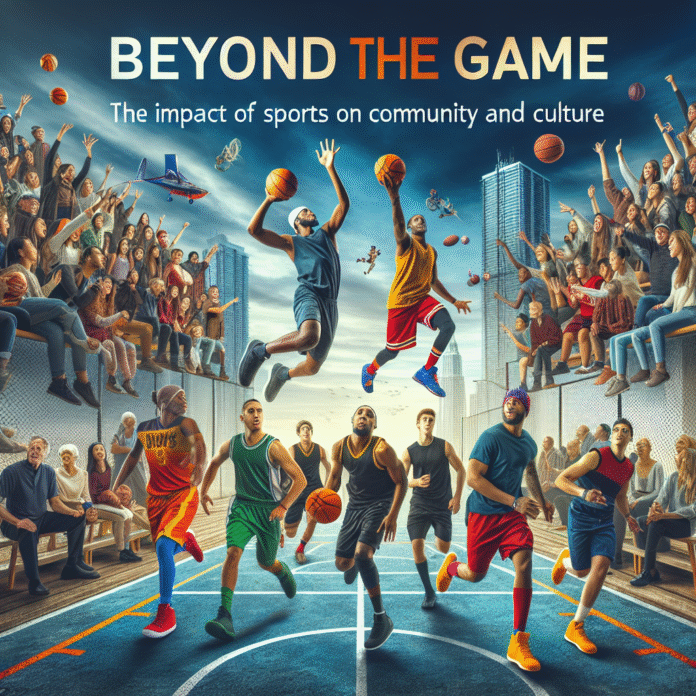Sports have always been more than just games; they are a lens through which we can understand society, culture, and community dynamics. From local youth leagues to international competitions like the Olympics, sports play a pivotal role in shaping identities, sparking conversations, and fostering connection among diverse populations. This article explores the multifaceted impact of sports on community and culture.
1. Building Community Bonds
At the grassroots level, sports are a powerful tool for community engagement. Local teams unite people, creating a sense of belonging among residents. Neighborhoods rally around their teams, finding common ground in shared experiences—be it victories, losses, or the thrill of competition.
Community sports events—such as local tournaments or charity matches—foster interactions among residents, helping to break down social barriers. They create opportunities for individuals to meet, collaborate, and engage, reinforcing local ties and building a robust community fabric.
2. Promoting Inclusivity and Diversity
Sports have a unique ability to bring together individuals from various backgrounds, transcending race, gender, and socioeconomic status. Initiatives like Title IX, which aimed to provide equal opportunities for women in sports, illustrate how sporting events and programs can promote inclusivity.
Moreover, international competitions, such as the FIFA World Cup or the Olympic Games, celebrate cultural diversity, showcasing athletes from around the globe. These events encourage global dialogue and allow nations to connect over shared passions, fostering mutual respect and understanding.
3. Economic Impact
The economic influence of sports on communities cannot be understated. Local businesses often thrive during sporting events, benefiting from increased foot traffic and consumer spending. From restaurants filled with fans to merchandise sales, community economies see significant boosts during game seasons.
Furthermore, large-scale sporting events, such as the Super Bowl or the Olympics, can transform cities. They lead to infrastructure improvements, job creation, and global exposure, although they can also bring challenges, such as displacement and gentrification.
4. Catalyst for Social Change
Sports have often intersected with social movements, serving as a platform for athletes to advocate for change. Icons like Muhammad Ali, Colin Kaepernick, and Billie Jean King have used their visibility to address issues such as racial injustice, gender equality, and human rights.
These actions can inspire communities to engage in social discourse, encouraging fans to think critically about societal issues while uniting them toward a common cause. Sports thus become a stage for activism, amplifying voices that demand change.
5. Health and Wellbeing
Participation in sports and physical activities promotes health and wellbeing. Community sports initiatives encourage active lifestyles, helping to combat obesity and associated health issues. Programs aimed at youth often emphasize teamwork and discipline, which can translate into better social skills and mental health outcomes.
In addition, the collective experience of supporting a team can offer emotional benefits. The camaraderie felt during game days contributes to a sense of joy and belonging, supporting mental health and fostering resilience.
6. Cultural Identity and Pride
Sports often mirror the cultural identities of communities. They can reflect local traditions, values, and histories, serving as a source of pride. Teams often symbolize a city’s spirit, embodying the hopes and dreams of their residents. The rituals associated with supporting a team—like tailgating, chanting, or wearing team colors—create cultural expressions unique to each community.
Moreover, the success of local teams can boost community pride and cohesion, as residents celebrate together, regardless of their individual differences.
Conclusion
The impact of sports on community and culture extends far beyond the playing field. Sports foster connections, promote inclusivity, drive economic growth, catalyze social change, and enhance health and wellbeing. By understanding and leveraging the profound effects of sports, communities can cultivate a shared sense of belonging and identity, celebrating not just athletic prowess but the rich tapestry of human experience that sports encapsulate. As we move forward, recognizing this interconnectedness will be vital in fostering healthier, more inclusive societies.






